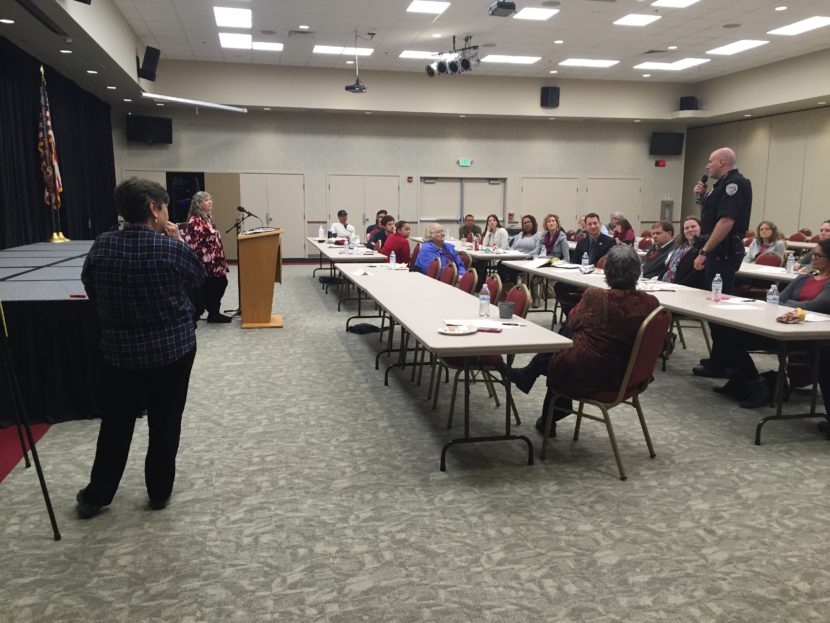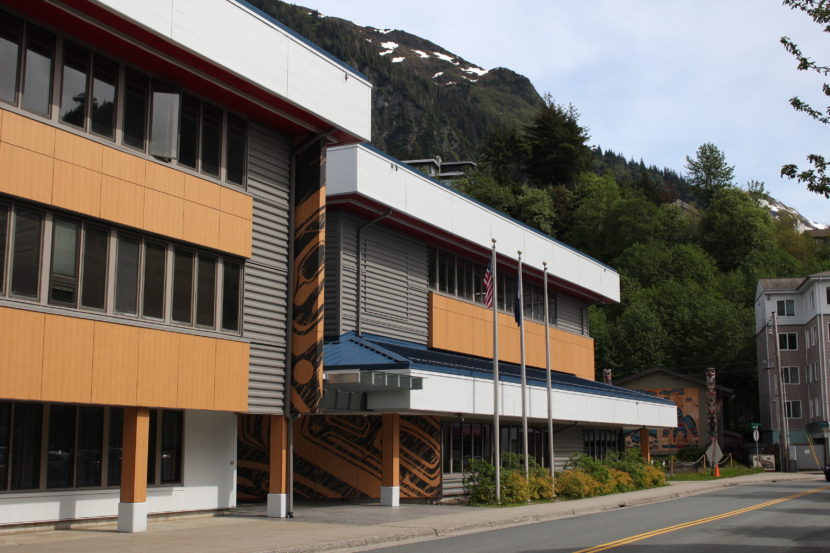
Two new tribal court programs are getting off the ground at Central Council Tlingit and Haida Indian Tribes of Alaska. They’re focused on reducing recidivism.
At the Elizabeth Peratrovich Hall, a framework is being created.
It’s part of a larger conversation to identify what’s holding some people back from reaching their potential. Namely, things such as childhood trauma, unstable home lives and a disconnect from culture.
Colleen Belardi is one of the coordinators at Central Council’s Youth Wellness Court. She said the program is still being developed.
“What we do know is that we would like to intervene with youth in the court system … and also kids who may be at risk of becoming involved in the court system,” Belardi said.
The juvenile court could take the shape of therapeutic court or family conferencing. It’s funded by a 3-year $550,000 grant from the U.S Department of Justice. But they want to make the program sustainable.
Belardi said mentorship will play a key role.
“We want to teach them traditional ways — putting up food, carving, what is it to have an elder in your life and what does that mean to have an elder in your life.”

A different program aimed at helping adult offenders is also underway.
Tribal Judge Debra O’Gara said the program primarily handles family law, but soon it will also be able to sentence some criminal cases.
State court judges reached out to the tribe, O’Gara said. Central Council signed an agreement with the state in April.
Defendants who plead guilty or are found guilty will be able to have their cases transferred to Central Council. From there, they’ll go through circle sentencing.
“We will have more time to delve into what is causing (them) to do this criminal behavior,” O’Gara said. “We’ll also have more time to inform the defendant as to what the effect their behavior has had on their family or what effect (it’s) had on their family or anybody who is harmed by that behavior.”
O’Gara said four other tribes up north have had success with the program. Eventually, Central Council wants to offer circle sentencing in other Southeast tribal courts.
Typically in the state court system, she said, the prosecutor or the judge have no connection to the defendant.
“Whereas in tribal court, we’re going to have family members and members … of their own tribe there, and often their grandma or grandpa or aunts or uncles or parents or siblings are going to be there in the court and have to explain why they’re doing what they’re doing.”
O’Gara says criminal behavior can sometimes be linked to poverty, childhood trauma or substance abuse. Depending on the case, the sentencing outcome could be job training or treatment — recommendations which will be sent back to the state.
The adult program could start up by the end of summer. O’Gara says she hopes it brings healing.
Editor’s note: A photo caption incorrectly stated the new location of the tribal court is at Elizabeth Peratrovich Hall. It’s actually located on the third floor of the Andrew Hope building, which also houses Elizabeth Peratrovich Hall.
